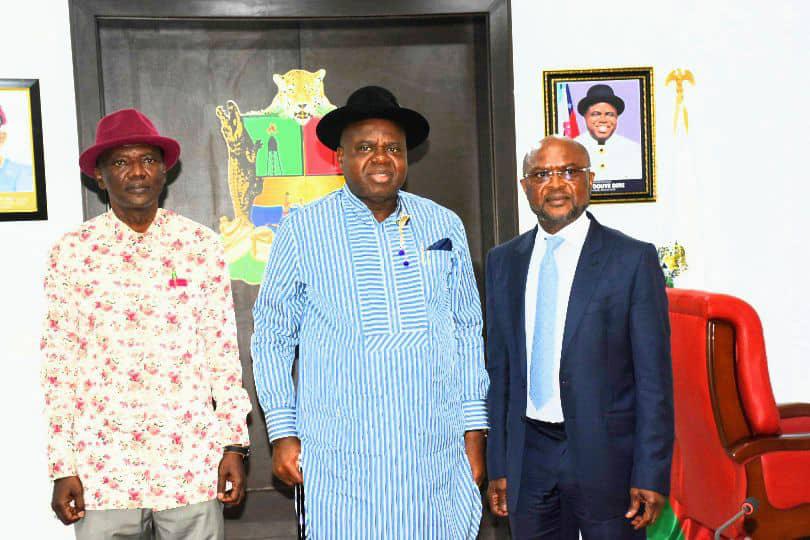Bayelsa State Governor Douye Diri has called for an equity stake in the $3.5 billion Brass Fertiliser and Petrochemical Company project set to commence on Brass Island, Bayelsa State.
Diri made the request on Tuesday when the company’s management team paid him a courtesy visit at Government House, Yenagoa.
In a statement by his Chief Press Secretary, Mr. Daniel Alabrah, the governor said the state’s interest in the project was driven by concerns over the exclusion of oil-producing states and local governments from the Petroleum Industry Act (PIA), which he described as a “flawed” legislation undermining host communities.
“The PIA excluded oil-producing states and their local governments,” he said. “The federal government now interacts directly with the communities, which is an affront on the Nigerian Constitution. The Constitution says land belongs to the state government, not the federal government. These anomalies have turned the PIA into a time bomb, fueling conflicts and litigation. Even funds meant for development are stuck in disputes.”
Diri urged the petrochemical firm to work closely with the state government to prevent similar conflicts and ensure mutual benefits for all stakeholders.
He praised President Bola Tinubu for reviving the long-delayed project, first conceptualised in 2009.
“I appreciate the president’s positive response to our request for federal presence in Bayelsa. The revival of this project is long overdue,” he said.
Managing Director of Brass Fertiliser and Petrochemical Company, Chief Ben Okoye, announced that work on the project will begin in October. He attributed previous delays to unresolved gas agreements but said President Tinubu had intervened, leading to an agreement signed in January.
Okoye commended the state government for constructing the Nembe-Brass road, which he said would save the company up to $100,000 in logistics costs by reducing reliance on river transport.
Project Coordinator Cyril Akika outlined the economic benefits of the venture, saying over 15,000 jobs will be created during construction and 5,000 permanent positions thereafter. He said the project will boost tax revenues, royalties, internally generated revenue, and SME growth through supply chain opportunities.
Other benefits, Akika said, include a 300MW gas-fired power plant, improved port and logistics infrastructure, and positioning of the Brass Free Zone as a global petrochemical hub.















